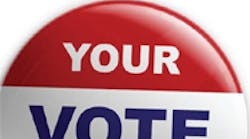While much of the national media focused on the presidential election, it ignored one of the highest priorities of organized labor to recapture membership and influence: the Employee Free Choice Act (EFCA), also known as the card-check proposal.
EFCA would allow union organization on the basis of signed authorization cards rather than relying on a private ballot supervised by the National Labor Relations Board (NLRB).
Why now? Over the last 20 years, there has been a steady decline in non-government union representation (close to 12%, compared to 20% of the workforce). As a result, unions are turning to the legislative process to accomplish what they have not been able to accomplish in the workplace. Record amounts of money were spent on key races—presidential and congressional— across the country. For instance, the Service Employees International Union (SEIU) reportedly spent $150 million this election cycle to influence races.
What’s at stake? Union organizers could approach employees anywhere—in bars, bowling alleys and stores—and ask them to sign cards authorizing union representation. Furthermore, the Act would allow the union to determine the scope of the bargaining unit. It could include warehouse workers, drivers, clerical staff and/or laborers or just certain segments of the workforce. And, the process would not apply to decertification, only to organizing efforts. It would apply in right-towork states as well as small businesses.
Once more than 50% of the targeted labor force signs authorization cards, you have a union. Collective bargaining would have to begin within 10 days. Should you not be able to negotiate a contract within 90 days, a federal mediator would be assigned, followed by binding arbitration that would force a contract on the employer that could include entry in an under-funded pension fund. Despite many restrictions on what employers can say or do during a current organization attempt, EFCA would add additional penalties (including $20,000 per violation) and additional back-pay restitution.
Previously passed by the House of Representatives, EFCA had majority support in the Senate butPolling indicates 89% of Americans believe a federally supervised, secretballot election on union representation is a better way to protect the individual rights of workers than the cardcheck proposal.
The International Warehouse and Logistics Association (IWLA) and the American Trucking Associations (ATA), are part of the Coalition for a Democratic Workplace, which supports the secret-ballot election.
The presidential election may be history, but many businesses could be facing their own elections, and elections have consequences.
Doug Sibila is president and CEO of People’s Services Inc., a thirdparty logistics provider in Canton, Ohio. He is past chair of government affairs and a board member for the government affairs committee of the IWLA. He can be reached by phone at 330-453-3709 or via e-mail at [email protected].



